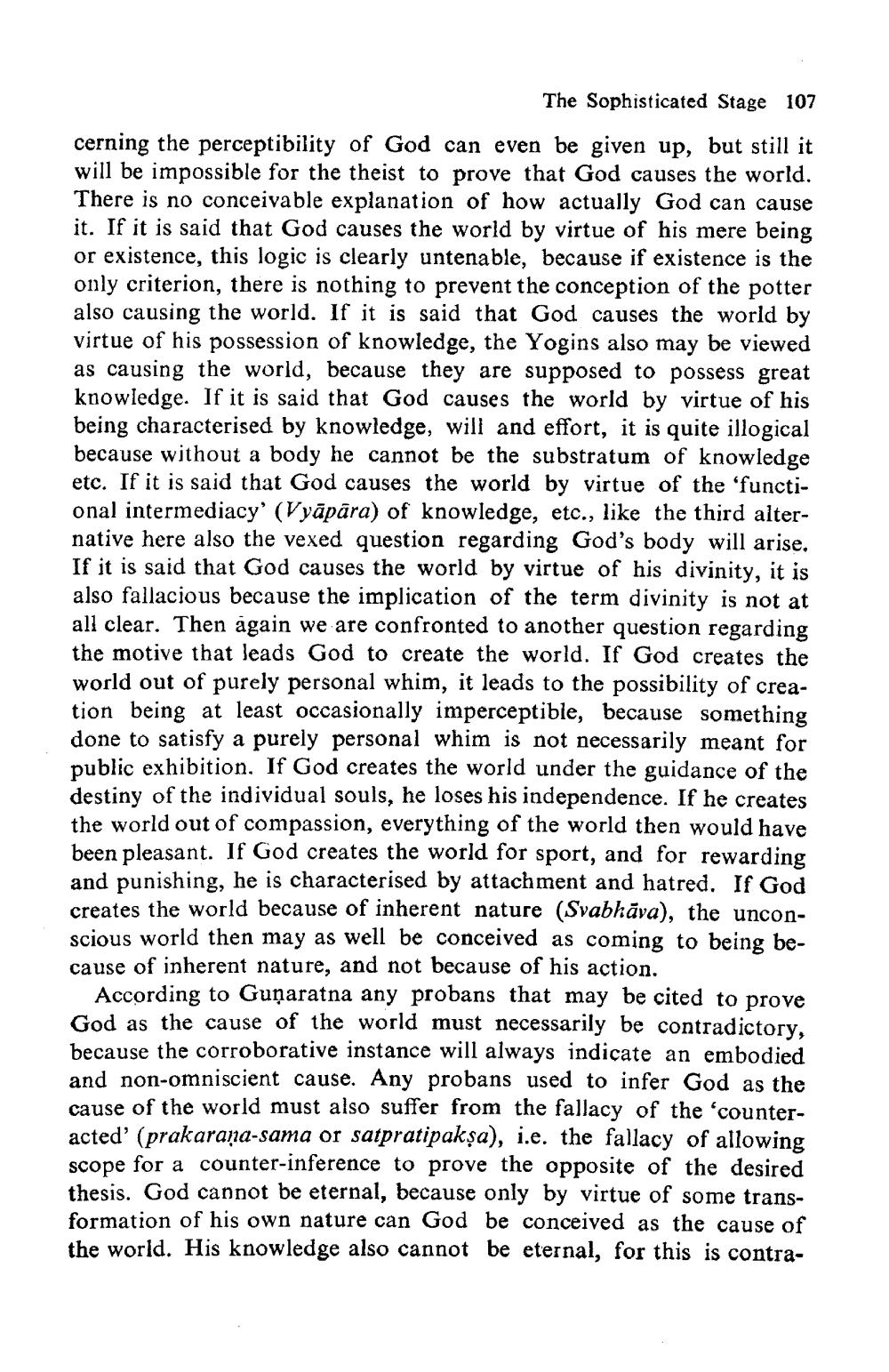________________
The Sophisticated Stage 107 cerning the perceptibility of God can even be given up, but still it will be impossible for the theist to prove that God causes the world. There is no conceivable explanation of how actually God can cause it. If it is said that God causes the world by virtue of his mere being or existence, this logic is clearly untenable, because if existence is the only criterion, there is nothing to prevent the conception of the potter also causing the world. If it is said that God causes the world by virtue of his possession of knowledge, the Yogins also may be viewed as causing the world, because they are supposed to possess great knowledge. If it is said that God causes the world by virtue of his being characterised by knowledge, will and effort, it is quite illogical because without a body he cannot be the substratum of knowledge etc. If it is said that God causes the world by virtue of the 'functional intermediacy' (Vyāpāra) of knowledge, etc., like the third alternative here also the vexed question regarding God's body will arise. If it is said that God causes the world by virtue of his divinity, it is also fallacious because the implication of the term divinity is not at all clear. Then again we are confronted to another question regarding the motive that leads God to create the world. If God creates the world out of purely personal whim, it leads to the possibility of creation being at least occasionally imperceptible, because something done to satisfy a purely personal whim is not necessarily meant for public exhibition. If God creates the world under the guidance of the destiny of the individual souls, he loses his independence. If he creates the world out of compassion, everything of the world then would have been pleasant. If God creates the world for sport, and for rewarding and punishing, he is characterised by attachment and hatred. If God creates the world because of inherent nature (Svabhava), the unconscious world then may as well be conceived as coming to being because of inherent nature, and not because of his action.
According to Gunaratna any probans that may be cited to prove God as the cause of the world must necessarily be contradictory, because the corroborative instance will always indicate an embodied and non-omniscient cause. Any probans used to infer God as the cause of the world must also suffer from the fallacy of the 'counteracted' (prakaraṇa-sama or satpratipaksa), i.e. the fallacy of allowing scope for a counter-inference to prove the opposite of the desired thesis. God cannot be eternal, because only by virtue of some transformation of his own nature can God be conceived as the cause of the world. His knowledge also cannot be eternal, for this is contra




